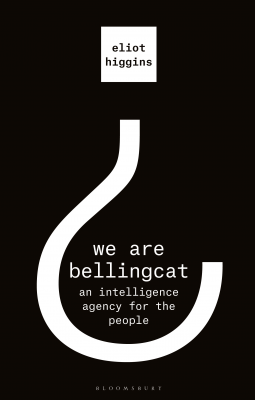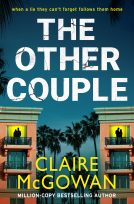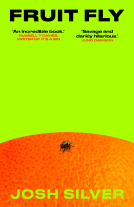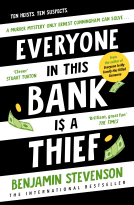
We Are Bellingcat
An Intelligence Agency for the People
by Eliot Higgins
This title was previously available on NetGalley and is now archived.
Send NetGalley books directly to your Kindle or Kindle app
1
To read on a Kindle or Kindle app, please add kindle@netgalley.com as an approved email address to receive files in your Amazon account. Click here for step-by-step instructions.
2
Also find your Kindle email address within your Amazon account, and enter it here.
Pub Date 4 Feb 2021 | Archive Date 4 Feb 2021
Bloomsbury Publishing Plc (UK & ANZ) | Bloomsbury Publishing Plc
Talking about this book? Use #WeAreBellingcat #NetGalley. More hashtag tips!
Description
‘In a world of disrupters, Eliot Higgins and Bellingcat have turned the world of intelligence gathering on its head . . . Their success is a wake-up call to governments who have been asleep at the wheel about what is needed to fight dictators and kleptocrats’ - Bill Browder, bestselling author of Red Notice
After the Russian suspects in the Salisbury poisoning appeared on television, it took just under two weeks for the real identity of one of them to be revealed. This huge investigative coup wasn’t pulled off by an intelligence organisation or a traditional news outlet. Instead it was made by Bellingcat, the open-source investigative unit that is redefining the way we think about news, politics and the digital future.
We Are Bellingcat tells the story of how a school dropout created a whole new category of information-gathering and galvanised citizen journalists to solve some of the biggest stories of our time, using just their computer screens. It charts the tools that have developed for analysing data since the 1990s, from geo-location software that can pinpoint a precise place, to an app that can identify to the half hour the time of day when a photograph was taken. And it digs deep into some of Bellingcat’s most successful investigations – the truth about the downing of Malaysia Flight 17 over the Ukraine, the sourcing of weapons in the Syrian Civil War, scoops into journalistic phone hacking – with the drama and detail of a crime novel.
A Note From the Publisher
NOTE: Pages 183-185 from chapter 5 ‘Mice Catch Cat’ are embargoed and have been removed from this digital proof
Advance Praise
‘If you don’t know what Bellingcat is this is your chance to learn’
Anne Applebaum
, Pulitzer Prize winning author
'In a world of disrupters, Eliot Higgins and Bellingcat have turned the world of intelligence gathering on its head .... Their success is a wake-up call to governments who have been asleep at the wheel about what is needed to fight dictators and kleptocrats'
Bill Browder, bestselling author of Red Notice
'If there were a Nobel Prize in uncovering war crimes, Bellingcat would receive it’
Toomas Hendrik Ilves, former President of Estonia
'It is impossible to exaggerate the urgency and the power of their work. It can sometimes seem as if the demagogues and despots hold all the cards at the moment. Higgins and Bellingcat are a crucial and courageous corrective'
James O'Brien
, bestselling author of How to be Right
Available Editions
| EDITION | Hardcover |
| ISBN | 9781526615756 |
| PRICE | £20.00 (GBP) |
Average rating from 70 members
Featured Reviews
 Reviewer 646008
Reviewer 646008
Let me start by saying I have heard of Bellingcat approximately 6 months before seeing this book, and even back then, I greatly admired the work they do and the techniques they use. So Bellingcat wasn’t entirely new for me and I picked up this book with the expectation to learn a bit more about them.
I have learned a lot about them as I was reading this book. I think it is great for everyone - whether you are someone who knows about Bellingcat, or whether you have never heard of them. Whether you are one of the OSINT enthusiasts or have never heard about image reverse searching.
This book talks about the beginnings of Bellingcat, how it all started, about the growth of the organisation, about the biggest cases up to date, but also about techniques used for online investigations. Very interesting reading, very informative, and very well written.
 Librarian 250745
Librarian 250745
I had heard of Bellingcat (what a delightful coined phrase that perfectly describes what they do btw) but this book was still an eye opener. I was familiar with many of the crimes and the methods of detection and the use of open source data just blew me away. It reads like the tautest, paciest spy fiction but these are facts and the detectives are cleverer. A fascinating read.
 Mary H, Reviewer
Mary H, Reviewer
I did not know anything about Bellingcat, not even the name, but I looked up their website and was fascinated by what I found. A people's intelligence investigative agency, or so I understand it to be, based on merit for employees, and what any person with a link to the Internet can find out. A very interesting book.
 Media/Journalist 696144
Media/Journalist 696144
I hadn't heard of Bellingcat before I saw this book was available on NetGalley but was intrigued by the premise. This really is a fascinating book and shows how much difference an average person can achieve with the internet behind them. The book is written in a friendly, chatty style - very approachable and very readable. I have no hesitation in recommending this book to anyone who has any interest in the current news agenda and how the truth is available despite the myriad untrue stories found all over the internet.
Are Bellingcat – Eliot Higgins
I was not overly aware of Bellingcat when I saw this book, so I felt like I was going in blind, but the detail in which Higgins writes about how Bellingcat was formed, its purpose, and its methods was intricate and compelling.
Online sleuthing and citizen journalism is a phenomenal resource and this book shows the importance of each of these things.
This book is scary in the sense that it reads like a crime/thriller, but its all true! The spread of fake news isn’t only from a certain orange soon to be former president, but can come from the most respected news outlets, but Bellingcat and the role of online sleuths is to spread correct information, not to scare, not to intimidate or to get their point across. Its to discover the facts for themselves, for the good of others and its amazing to think that anyone can do it. Even you and I.
This is a read that is not quick, its heavy going with information and took me a while to get into at first as I felt it was overloaded with information at the start, but that is what this book is about, information, accuracy and discovering the truth.
Thank you to Net Galley, Eliot Higgins and Bloomsbury Publishing for an ARC of this book in exchange for an honest review.
My brother always used to share super dubious news articles on Facebook. I always used to say do you actually know that that’s true? Have you even read the article? 9/10 times he hadn’t and yes it was nonsense or a news story reused from years before.
I’m sure we’ve all seen the footage this week from the US. And maybe you’ve seen the video of the woman rubbing her eyes with a towel in which you can just about see an onion? Half of the news stories id seen were saying she was doing it to make it look like she’d been attacked. However was she actually doing it because onions can take away the side effects from tear gas because she was somewhere doing something she shouldn’t have? Either way how do we know what to believe when we see things posted online. We are Bellingcat is a brilliant example of an organisation trying to prove whether the news, videos and articles we read are true and if they aren’t prove the facts, solely through open-source investigations. This book explores news stories such as the downing of the MH17 plane over Ukraine, the Salisbury novichok poisonings, the Syrian war, the New Zealand mosque terrorist attack which was broadcast live on Facebook and whether what we are reading online about them are facts, or someone’s spin on them maybe having a hidden agenda. If you want to dig deeper into the news stories you read I implore you to read this. I also ask you to think about the news article you’re reading and sharing and question if there’s a chance you’re spreading fake news.
This was an absolutely fascinating book covering a subject that is unknown to most people, particularly the older generation. The potent mixture of the evovement of the use of the internet and recent tragedies and war crimes made for a very interesting read.
The author managed to make this book eminently readable despite the subject matter being technically complex. A very well-written book.
As an aside, the progress made by Bellingcat is quite astounding in such a short time and I am comforted that there is an organisation out there trying to look after our interests.
This is a must read for anyone that keeps up to date with current affairs. After reading this book one will never take any news or more particularly social media article as gospel.
Not my usual read but it sounded really interesting and I was not disappointed.
I hadn't heard of Bellingcat, it was quite a fascinating and insightful read.
I had heard of some things described by the book - the mobile phone hacking scandal, the poisoning of the Russians in Salisbury.
They go into detail about how they gather evidence and facts that either prove or disprove what is being reported in the news. The amount of work they put in in is massive, so much time searching. Open source intelligence is how they do it. Its made easier these days due Internet and social media.
Such an insightful read.
Thank you netgalley for the ARC in exchange for my honest review.
What an amazing book this is, fully deserving of its 5 Stars. I started reading knowing an iota about Bellingcat and its reputation and my admiration grew as I turned the pages. Could not quite manage the whole book in one sitting as even I sleep sometime - although it seems that they do not.
This is a book that anyone who has any feeling for the truth should read. How these folk do their very best to stop fake-truth and identify fake-news thus stopping all sorts of injustice is truly amazing. We need to acknowledge what the group have achieved and will,hopefully, continue to achieve.
 Val R, Reviewer
Val R, Reviewer
This is a hugely well-researched and detailed account by British journalist, Eliot Higgins, who founded Bellingcat in July 2014. I’d never heard of Bellingcat but thought this sounded like an interesting read and a subject I should learn more about.
Bellingcat is a website that is run as a place where independent investigative journalists and any interested individual can work collaboratively to publish facts about world news. They have no political leanings and use open-source intelligence to unearth the truth about events which are often being misreported on purpose by governments, groups or individuals. It evolved from a blog, under the name of Brown Moses, that Elliot Higgins, wrote to publish his detailed findings on the Syrian Civil War. Bellingcat;s first big case was reporting the truth about flight MH17 which was shot down while flying over eastern Ukraine.
There is a huge amount of detail in the book about the methods and techniques used by people world over used to contribute to discover to the truth about many terrorist and war incidents, the Skripal poisoning in Salisbury and the Christchurch mosque massacre among others. The dedication, that could be described as obsession, of those who give their spare times to search through thousands and thousands of images and videos is quite astounding. They will spend days and weeks searching Google Earth to geolocate the exact location of an incident in order to corroborate the truth. Bellingcat basically represents the ultimate positive use for having many eyes – tens of thousands potentially – to ensure that the truth and facts prevail over spin and lies.
With thanks to NetGalley and Bloomsbury Publishing Plc for a free copy of this book in exchange for an honest review.
 Tracey M, Reviewer
Tracey M, Reviewer
Utterly fascinating book - inspiring, intriguing and eye-opening. I've fancied myself an amateur online researcher but this is a whole other level of expertise. Rather than the digital world being a poor facsimile of the real thing, it is now central to the way in which we understand and operate in the so-called real world.
What an eyeopener! I had heard of Bellingcat but didn't know anything about it. A fascinating read. Informative from the start and written perfectly.
Its amazing what can be found out and how! Read it!
 Reviewer 238688
Reviewer 238688
Thank you for providing me with a review copy of this book. Enjoyed reading, interesting points - would recommend....
 Debra B, Reviewer
Debra B, Reviewer
This book works on two levels, both as an explanation of how they’ve developed as a citizen journalist organisation and how they played a key part in the investigations for which they are best know.n. Really interesting look at their growth and methods, and the part citizen journalists / investigators can play.
A brilliantly written story looking into open source intelligence (OSINT) and how it is used in real life. A technique I love and use a lot for work and to satisfy my personal curiosities..It is so often that you find something on the subject of your interest, but it ends up being an absolute disaster. This is an exception! It is very well written, evolves around some very interesting cases and hopefully will be an eye opener to many!
It also shows how enthusiasm and some self-education can take this far. The book is amazing on so many levels, it's hard for me to be concise.
But if you want to learn anything about disinformation, OSINT and how it works or just a fan of detective stories - read this! You won't regret it!
I am a number one fan of Eliot Higgins for sure now!
This book tells the story of Bellingcat; an independent, international collective using open-source and social media data to undertake online investigations into some of the world’s most pressing stories.
I have been aware of Bellingcat for some time, thanks to The Browser website which has recommended their published articles. The book provides a rich history and timeline of Bellingcat’s evolution from a small scale blog to the respected and influential organisation is has become today.
It is fascinating the investigative journalism Bellincat have done, largely with publicly available online data; along with hard work, diligence and the patience of staff and volunteers. The book describes how Bellingcat investigates news events by identifying people, locating places, dates and even the time of day from publicly available online data ( photos & videos on Social Media, satellite imagery, online databases, specially developed software). These events may be military, political or criminal in nature, well known, unknown or misreported by the worlds media.
Examples are given of phone hacking, military actions, terrorism, government actions and war crimes. The online data investigated is often coming from active participants or bystanders in these events. Bellingcat’s innovative investigative methods often provide more accurate, more reliable reporting than the major news organisations or official government investigations.
The book describes Bellingcat’s online methods, internal and sometimes external collaboration with news organisations, like-minded non-government organisations and sometimes governments or legal authorities. Examples are given that expose and sometimes bring to justice perpetrators and enablers of local, national and international crimes. Truth and justice are recurring themes in Belligcat’s work; something the book makes clear they strive to retain as their organisation and influence grows.
The book also delves into the problems of the growing influence of Counter-Factual information often disseminated via Social Media. Debunking incorrect stories is as much a part of their work as providing their own factual, evidence-based accounts.
Recurring themes of integrity, ethics, verified evidence, truth and justice are constant throughout the book. The books closing chapters discuss the future direction of their work, including how Artificial Intelligence, Bellingcat and like-minded organisations or individuals (perhaps with training and online resources) can address the ongoing problems of factual media and reporting.
Bellingcat is providing an outstanding service in these difficult times when it is sometimes difficult to trust the many sources of information we are exposed to in our daily lives. The Bellingcat organisation, their brave staff and collaborators deserve our thanks. An important book, deserving a wide audience. This book is a great read for anyone interested in the media, truthful accounting of current events and an insight into the future.
A compelling story of the emergence and hugely impressive achievements of open-source investigation as a new form of journalism / activism / human rights work, and of Bellingcat in particular.
Coming to this with only a peripheral awareness of Bellingcat, this book was ideally-pitched, neither assuming too much familiarity with the subject matter nor slowing down the story with too much detail. The details of the examples of the author and his colleagues' work were at times hard to follow, as was the author's practice of jumping around from case to case, but the narrative was consistently fascinating.
Highly recommended for anyone with an interest in truth and justice.
 Douglas O, Reviewer
Douglas O, Reviewer
This is a fantastic story revealing the existence of an online organisation that is transforming the gathering of verifiable information and replacing old fashioned on-site journalism. Eliot Higgins has gone from being a computer nerd who spent his spare time pursuing international crimes to a highly respected international business man who resolves international problems ahead of government agencies and, because of Bellingcat’s independence, with greater clout. Who identified the Salisbury poisoners? Bellingcat. Add to that the company’s contribution to getting the facts about Syria, Libya, the Yemen and other centres of atrocities, the company’s importance is immeasurable. Using google maps and other online tools, this company can be certain about what is happening in photographs and exactly where it is taking place. If this can be done at a distance, the limited experience of onsite journalists is marginalised as they see only what’s around them and cannot verify the perpetrators. As the book states, ‘Bellingcat is something that has never been before, an internal agency for the people’. The book gives convincing detail about its work. It is an amazing read!
 Aileen G, Reviewer
Aileen G, Reviewer
An interesting book. It explains how Bellingcat came into being and gives an overview of how - and why - it took off. If you take it all at face value then they are definitely a force for good.
I did some research using the internet and failed to find confirmation. Some sites - mainly ones that are suspect themselves - think they are part of MI5 or CIA. When I asked a friend what he thought - he follows some strange sites himself - he said to look into their funding, as it's often there that things show up. Nothing much showed up.
For myself, I think they're okay. Oh and I enjoyed the book too.
Thanks to Netgalley and the publisher I read a free advance review copy of the book. This review is voluntary, honest and my own opinion.
 Brian H, Reviewer
Brian H, Reviewer
I have been listening to the Bellingcat podcast and was delighted to see this book, it basically gives a potted history of the (organic) development of Bellingcat. The story is very interesting and shows how quickly online investigation has developed in recent years.
Higgins started his work from his kitchen table and quickly became an expert in the field. Much of his work has been marred by those who seek to spread disinformation and constantly called his work into question.
Through Bellingcat's work on the Skripal poisonings and the MH17 downing the organisation has developed a reputation for thorough fact checking, emotional distance and letting facts speak for themselves.
This book is very interesting and gripping and I thoroughly recommend it.
 Paromjit H, Reviewer
Paromjit H, Reviewer
I have to admit that whilst I was aware of Bellingcat, my knowledge of it was sketchy at best. This is a detailed history of Bellingcat and its founder, Eliot Higgins, aka blogger Brown Moses, named after a Frank Zappa song. Higgins outlines his background, becoming obsessed with the Arab Spring and the Libyan Civil War, whilst working as a admin worker in Leicester, using his laptop to scour for information on the internet to add small details on twitter, and other sites, such as the comments section on the Guardian-live blog, focusing on developing stories in the Middle East. Such humble beginnings is later to give birth to the global entity, taking on an ever broader range of issues, that is Bellingcat, global truth warriors, a growing community of largely determined and obsessive voluntary contributors, armed only with their laptops, searching the internet, social media and google earth for open source information.
Bellingcat are the digital detectives who tracked down the Russian GRU agents responsible for the 2017 deadly Novichok nerve agent attack in Salisbury, Britain, that targeted Sergei Skripal and his daughter, Yulia, an attack that Putin's Russia had denied, a Russia that had previously gone after Alexander Litvinenko. At their heart, Bellingcat, with its collaborative spirit, sets out to take an evidence based approach, to identify, verify and amplify (publicise) the truth in a counterfactual, post truth, era, challenging the powerful, politicians and the criminal, demanding accountability and offering training for those interested in their methodology. Amongst their many successes, they have exposed Assad's use of chemical weapons in Syria, identified ISIS members in Europe, tracked down the Neo-Nazis responsible for violent attacks in Charlottesville, and proved that the Russians downed the Air Malaysia passenger plane in Ukraine. Needless to say, they have made powerful enemies determined to destroy them, you cannot take on the likes of Putin's Russia without consequences.
Bellingcat is the people's intelligence agency at a time when power is in fewer and fewer hands, an organisation that has begun to challenge that old adage that history is written by the victors, now it can be written by the defeated too. It has even charted how people have become radicalised into becoming far right white supremacists, not in itself a new phenomena, by decoding information many had seen but few had understood. It is terrifying just how much information on people is held on the internet, not to mention photographs, and where people can be tracked through family and friends, raising the question whether there is any such thing as privacy. On the other hand, it is Bellingcat's abilities to trawl through this very mass of openly available data that allows it to come up with its ground breaking stories. This is a fascinating and informative read, Higgins provides a mass of intricate details on their biggest operations, including their use of geolocation techniques, and it is written in a riveting and highly readable style. Highly recommended. Many thanks to Bloomsbury for an ARC.
 Librarian 245523
Librarian 245523
Very interesting book about how Bellingcat started as an organisation that uses open source information so it can openly say what the outcomes were as opposed to MI5 or government agencies that need to remain quiet or risk losing their secrets. Very detailed and a spy type read. I hadn't heard of Bellingcat before this, but there is a link to the blogger Brown Moses too. It also describes the part the mainstream media play. Highly recommend this book.
 Matthew S, Reviewer
Matthew S, Reviewer
This is an interesting account of the fight against what the author calls the “Counterfactual Community”, which includes but is not limited to the Russian FSB and assorted multi-national internet extremists. I came to this book having known pretty much what the author, as the blogger “Brown Moses” had been up to regarding Syria a few years ago, and that “Bellingcat”, the offspring of his blog, had tracked down those responsible for the Salisbury Poisonings when the police and MI5 had not (or at least, not so far as we know). Precisely because Bellingcat uses open source information, it is able to publish its successes when traditional national intelligence agencies have to keep quiet or lose their secret sources.
The author describes not only the basic open source investigative methods he invented for the Brown Moses blog, but also how these have evolved, through the Bellingcat years, to meet threats, needs and opportunities alike. It is interesting to see how he keeps ahead of the counter-factual community as their own methods change, not necessarily in the directions of either enlightenment or sophistication, but towards a sort of amplified assumed ignorance which they impiously hope will prove contagious. The author sees this as a tendency to deliberately confuse issues rather than explain them and to pretend that there is no such thing as truth. He also sees this is a trait which some people have, rather than a policy that someone invented. In my own view, if anyone in modern times invented the “post-truth world” it was Vladislav Surkov, who is notable amongst those involved in Vladimir Putin’s rise to power by virtue of the fact that he is still alive and he is, if anything, more influential than he once was (everyone else has been sidelined or has had a heart attack). Imagine, if you will, a version of Alistair Campbell who gets his way by throwing thinking fits rather than shouting blood-curdling threats down the phone at editors and ministers alike. The author makes no mention of Surkov and clearly has never investigated him, but should he choose to do so, he might be able to cast even more light into dark corners than he has done already. But the post-truth world is not just a modern invention: “what is truth?” was a popular way to justify falsehood and injustice in the Roman world and we have Pontius Pilate as an example of where treating truth as an illusion will get you.
The author is not a fan of Wikileaks and Julian Assange. The Wikileaks methodology is described as leaking such a huge mass of data at once that it is impossible to verify it all. (Even assuming it is all true, the weapon of the righteous is the sword of truth, not truth’s cluster bomb.) The author does not really explain his reservations about Wikileaks as clearly as he might, certainly not at any length, so here’s my understanding of what he means:
A great mass of largely incomprehensible facts are assembled, in the knowledge that what the mainstream media will do upon their release is to use search engines and other software tools of varying degrees of sophistication to quickly cherry-pick all the “relevant” (in other words: “juicy”) bits. All the malign actor needs is a grudge against someone (Hillary Clinton, in Assange’s case) and they can sow their gigabyte or so of factual but largely incomprehensible data with some really nice-looking cherries, which the journalist’s predictable cherry-picking search terms will be sure to find. But because the data as a whole is so indigestible, the verification process has already been abandoned because the carefully-timed release of the huge mass of data has put competitive journalists under pressure of time as they seek to be first to find the best cherries and publish them. So mostly or even completely true facts, in sufficient concentration, can become a “Weapon of Mass Disinformation.” And Ms Clinton’s reputation has been trashed. Or anybody else’s reputation, on the left, right or even the extreme centre represented by Tony Blair and Immanuel Macron. I do not perceive Ms Clinton to be a martyred innocent, but suggestively shaving some truths to the bone and letting journalists discover them, as if by their own efforts, in the middle of a pile of factual irrelevance is a tool which could convict anyone of anything. The ultimate injustice is to harness truth to evil ends.
The author does not mention the ICIJ, but I’d regard them with some of the same reservations he clearly has about Wikileaks, because they also tend to gleefully pack their truth into cluster bombs.
And although, from the very beginning of his investigative career Eliot Higgins has battled the FSB (which takes considerable courage), the need now is for someone to take the fight to China’s 610 office and the Xinjiang Production and Construction Corps. The FSB is only committing murder, after all, whilst the 610 Office and the XPCC are doing worse than that. They are not working together to commit genocide, so much as working independently to each eliminate a completely separate victim community. The FSB seeks to pick a fight and then win it, which is how Mr Higgins comes to be fighting them (and, touch wood, winning). The 610 Office and the XPCC are currently having their way without any fight at all.
Really interesting take on online sleuthing and citizen journalism.
This book is incredibly detailed and not so much a how-to but rather a history of how the organisation started and how they uncovered some huge misinformation including the Malaysian flight that was shot down and the poisoning of Sergei and Yulia Skripal in Salisbury.
The book talks about how the organisation started with Eliot Higgins as an amateur sleuth to the organisation in its present form.
I found it really interesting and different from anything I've read before, but it is incredibly dense and detailed so if this is something you're interested in, I'd recommend this book.
 Lee C, Reviewer
Lee C, Reviewer
I didn’t know about Bellingcat before reading this book but I do now
We Are Bellingcat details how the Open-Source investigative unit grew through its involvement in some very high profile worldwide incidents. A very interesting read
When the Russian Novichok poisonings happened in Salisbury, UK, Higgins was just a normal office worker with an ‘unsatisfying job’ and an interest in the news and computing. This book is the story of how Higgins went from leading an ordinary life to becoming an obsessive online sleuth of world events. His obsession led to the formation of Bellingcat an organisation that has been consulted on by NGOs, Government intelligent agencies, and journalists to help solve crimes, such as the downing of flight MH17.
The book tries to show how we, as everyday internet users, with a little skill and a lot of time can also use freely available online information to create the connections that reveal the true timelines and culprits behind a number of world events and war crimes.
As a librarian I’m passionate about digital and media literacy. In a world where information is so freely available, how do you know what is true and what is a lie? Higgins takes you back to the main principle of seeking out the primary data and double checking everything.
Higgins makes much of the fact that Bellingcat always makes it clear where their information has come from and citing all sources. Good practice for all of us, but later in the book he does say how they paid a Russian to gain access to hidden records. Those records are the catalyst for the rest of that particular search and they would not have been able to solve that particular crime without those sources. So though Bellingcat may have started as an open source platform of truth, but can it really still claim those credentials if they are paying someone for access to secure documents?
Throughout the book I kept on wondering what really drove Higgins to devote so much of his time to this work. I never felt that this was satisfactorily dealt with, and I say this as someone who knows the buzz of finding something that everyone else has struggled to locate. There is a certain satisfaction in being able to pull all the pieces together and follow a trail to the pot of information gold but I’m not sure I could devote hours of my life to watching video footage of war crimes as something that started as a hobby. I also kept on asking myself why is this organisation needed, why aren’t intelligence agencies around the world doing this work, why aren’t news organisations doing it? It’s interesting that a book with an upside down question mark on the cover left me with so many questions of my own.
I’d really recommend this book to anyone interested in journalism, politics, world affairs and media, digital or information literacies. Higgins raises some very important issues on how we get our information, how we fight against ‘fake news’ and how important it is for all of us that each generation has those skills.
Readers who liked this book also liked:
We Are Bookish
Historical Fiction, Literary Fiction, Multicultural Interest
Foluso Agbaje
General Fiction (Adult), Multicultural Interest, Mystery & Thrillers
L.M. Chilton
General Fiction (Adult), Humor, Mystery & Thrillers


















